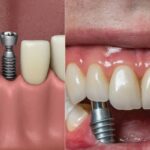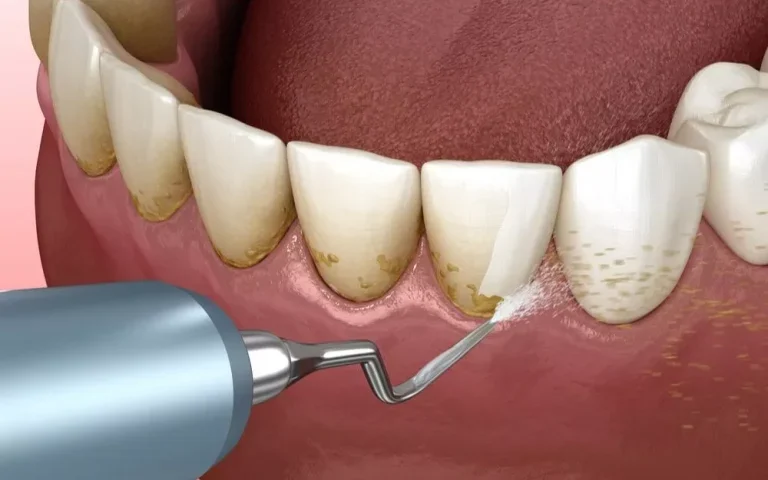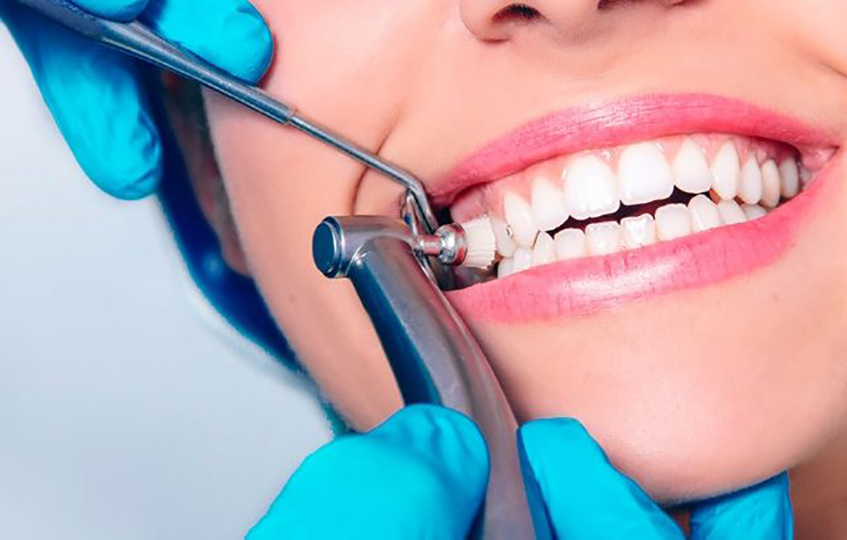
Where to Get Dental Implants in Ludhiana?

Why Kapoor Dental Clinic is the Best Choice for Root Canal Treatment
Maintaining optimal oral health requires more than just daily brushing and flossing. Regular professional teeth cleaning, also known as dental prophylaxis, is an essential part of your oral care routine. But how often should you schedule these cleanings? In this blog, we’ll explore why professional teeth cleaning is vital, how frequently you should get it done, and what factors can influence the ideal schedule for your dental cleanings.
What Is Professional Teeth Cleaning?
Professional teeth cleaning is a dental procedure performed by a dentist or dental hygienist to remove plaque, tartar (hardened plaque), and stains from your teeth. Even with good oral hygiene practices at home, plaque can still build up in hard-to-reach areas, eventually turning into tartar, which can only be removed with specialized tools.
This procedure helps prevent common dental issues like cavities, gum disease, and bad breath, ensuring that your teeth and gums remain healthy.
Recommended Frequency for Teeth Cleaning
The American Dental Association (ADA) recommends that individuals visit their dentist at least twice a year for routine cleanings and check-ups. This six-month interval is considered optimal for maintaining oral health and preventing dental problems from worsening.
However, the ideal frequency can vary depending on several factors, including your oral health, lifestyle, and medical history.
Factors Influencing Teeth Cleaning Frequency
While twice a year is the general guideline, certain conditions may necessitate more frequent visits. Let’s explore these factors:
1. Your Overall Oral Health
- If your teeth and gums are generally healthy, the twice-a-year cleaning schedule should suffice. However, if you suffer from conditions like gum disease (periodontitis) or have had extensive dental work, your dentist may recommend more frequent cleanings—sometimes every 3 to 4 months.
2. Gum Disease (Periodontitis)
- Patients with gum disease may require more frequent cleanings, called periodontal maintenance, to manage the condition. If left untreated, gum disease can lead to tooth loss and other health complications. For such patients, cleanings every 3-4 months can prevent the progression of the disease.
3. Smoking or Tobacco Use
- Smoking or using tobacco products increases the risk of plaque and tartar buildup, making it more likely that you’ll need more frequent cleanings to avoid gum disease and tooth decay. Smokers are typically advised to have dental cleanings every 3 to 4 months.
4. Diabetes
- People with diabetes are more prone to gum disease, which makes regular professional teeth cleanings crucial. If you have diabetes, you may need to visit your dentist more frequently to prevent infections and maintain oral health.
5. Pregnancy
- Hormonal changes during pregnancy can increase the risk of gum disease (pregnancy gingivitis). Pregnant women should stick to their routine dental visits and may even require additional cleanings depending on their oral health condition.
6. Orthodontic Treatment (Braces or Aligners)
- Patients undergoing orthodontic treatments, such as braces or clear aligners, may experience difficulty in maintaining oral hygiene, leading to more plaque buildup. Your dentist may recommend more frequent cleanings during the treatment period to prevent cavities and gum issues.
7. Dry Mouth (Xerostomia)
- People with chronic dry mouth are at higher risk of tooth decay and gum disease because saliva, which helps wash away food particles and neutralize acids, is reduced. This condition may require more frequent cleanings to maintain oral health.
Benefits of Regular Professional Teeth Cleaning
Professional teeth cleaning offers numerous benefits that can help improve and protect your oral health, including:
1. Prevention of Cavities
- Plaque is one of the leading causes of tooth decay. By removing plaque buildup, professional cleanings significantly reduce the risk of cavities forming between your dental visits.
2. Prevention of Gum Disease
- Regular cleanings help prevent gingivitis and more advanced forms of gum disease, like periodontitis. Gum disease is one of the main causes of tooth loss in adults, but it can be avoided with proper dental care.
3. Fresher Breath
- Persistent bad breath (halitosis) is often caused by food particles trapped between the teeth and under the gumline. Professional cleanings remove these particles and bacteria, leaving your mouth feeling fresher and cleaner.
4. Whiter Teeth
- Over time, stains from food, drinks, and smoking can discolor your teeth. Professional cleanings remove surface stains and make your teeth look whiter and brighter.
5. Early Detection of Dental Problems
- During your cleaning appointment, your dentist or hygienist will also check for signs of potential problems, such as cavities, gum disease, or oral cancer. Early detection is key to preventing more severe issues down the line.
What to Expect During a Professional Teeth Cleaning?
If you haven’t had a professional cleaning in a while, here’s a step-by-step breakdown of what typically happens during the procedure:
- Physical Exam
- A dental hygienist starts by conducting a brief exam of your mouth to check for signs of gum disease or other dental issues.
- Scaling
- Using special instruments, the hygienist removes plaque and tartar from the surface of your teeth and along the gumline.
- Polishing
- After scaling, your teeth are polished using gritty toothpaste to remove surface stains, leaving them smooth and shiny.
- Flossing
- The hygienist will floss your teeth to remove any remaining debris between the teeth.
- Rinsing and Fluoride Treatment
- Your mouth will be rinsed to remove any particles, and a fluoride treatment may be applied to help protect your teeth from decay.
Maintaining Oral Health Between Cleanings
To extend the benefits of professional teeth cleaning, it’s essential to follow a good oral care routine at home. Here are some tips:
- Brush your teeth twice a day with fluoride toothpaste.
- Floss daily to remove food particles and plaque from between your teeth.
- Use an antibacterial mouthwash to help reduce plaque and prevent gum disease.
- Avoid sugary foods and beverages that can contribute to plaque buildup.
Conclusion
While the standard recommendation is to get professional teeth cleanings every six months, the frequency can vary based on individual needs. Factors like gum disease, lifestyle habits, and underlying health conditions may require more frequent visits. Consult your dentist at Kapoor Dental Clinic in Ludhiana to determine the best cleaning schedule tailored to your oral health.
Regular professional cleanings, along with proper home care, are crucial for maintaining a bright, healthy smile and preventing dental problems in the future. So, don’t wait—schedule your next cleaning today!




